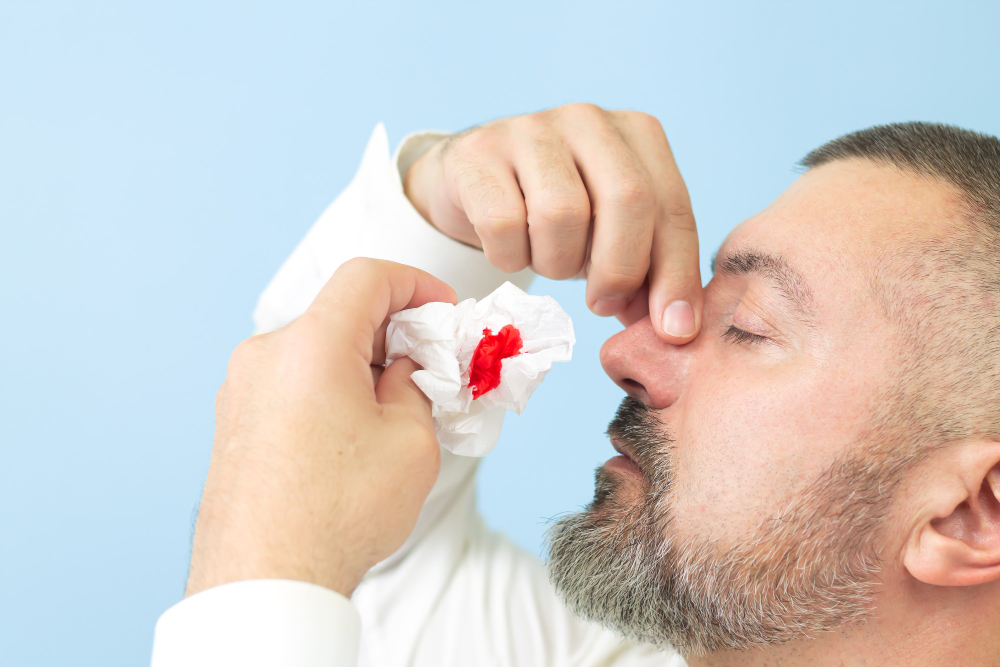Nosebleeds can be caused by simple causes, or it can be a harbinger of life-threatening diseases.
Nosebleeds can be caused by simple causes, or it can be a harbinger of life-threatening diseases. Nosebleeds are divided into anterior and posterior nosebleeds.
Anterior nosebleeds: It is mostly seen in children and young adults. Most nosebleeds are unilateral due to the cracking of a capillary in the middle of the nose. The veins in this area are very thin. Since they are on the surface, they can bleed from nose blowing, playing with the nose in children, nasal trauma and even with the slightest touch.
Posterior nosebleeds: It is frequently seen in middle and advanced ages, especially in those with hypertension. Bleeding occurs in our nose from the back and upper regions. Its severity is higher than anterior bleeding from the nose. Often, blood comes from the nasal and nasal passages at the same time.
What are the Causes of Nose Bleeding?
There are many causes of nosebleeds. Nose bleeding may occur, especially as a result of trauma. In addition, blows to the nose can cause nosebleeds. For this reason, blows to the nose should be avoided. Nose bleeding, which sometimes manifests itself with light bumps, is a much easier situation to intervene.
The other name of nosebleed is epistaxis, but it is a common condition among the people. Nose bleeding, which can happen to almost anyone, can sometimes become an unstoppable bleeding. Today, many people have to apply to hospitals due to non-stop nosebleeds. It is possible to say that these bleedings are more common in summer than in winter. In addition, there can be many causes of nosebleeds. One of these reasons is sinusitis. May cause allergic rhinitis. Especially hot weather can cause it. There are many reasons such as insertion of a foreign body into the nose, high blood pressure, and nose surgeries.
A doctor should be consulted in the following cases:
- In case of recurrent nosebleeds, it is necessary to consult a doctor.
- In case of bleeding from other places other than the nose (for example, with urine and defecation),
- In the presence of bruises and bruises even with light blows on the body,
- In cases where blood thinners such as aspirin are used,
- In cases where there are diseases such as liver, kidney or hemophilia that may cause coagulation disorders,
- If you have recently received chemotherapy, please contact your doctor.
- If the bleeding still continues even though the nose is compressed for 10 minutes,
- If the bleeding recurs after a short time,
- If you feel faint, dizzy or faint
- If you have palpitations or difficulty breathing,
- If blood comes from the mouth with spitting up blood or vomiting,
- If there are additional symptoms such as fever of 38.5 degrees and rash / redness, it is necessary to go to a hospital without delay.
Especially in the elderly and children, it is necessary to be sensitive in nosebleeds. In this regard, it is very important not to go out in the summer months, in the heat of the afternoon. This condition, which causes high blood pressure in the elderly, can bring along bleeding. If the bleeding occurred in babies, it is necessary to consult a specialist doctor without wasting time. The first thing that should not be done to stop the nosebleed is to tilt the head back. On the contrary, in an upright position, in a sitting position, the head should be slightly forward.

 TR
TR DE
DE RU
RU




